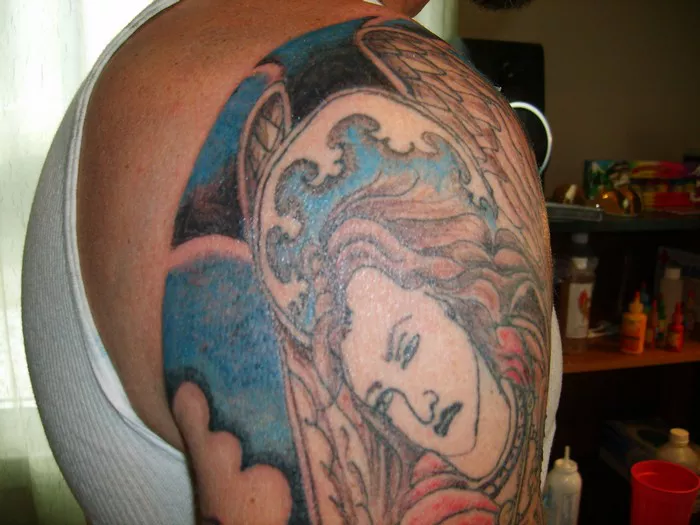Tattoos have been a part of human culture for centuries, serving as symbols of identity, belonging, and self-expression. However, as the popularity of tattoos has surged in recent decades, so too has the phenomenon of tattoo regret. Many individuals find themselves grappling with feelings of dissatisfaction or even remorse after getting inked. But is tattoo regret a common experience, or is it an anomaly? In this article, we delve into the psychological and societal factors behind tattoo regret to shed light on this complex issue.
The Rise of Tattoo Culture
Tattooing has a rich history, with evidence of its practice dating back thousands of years in various cultures around the world. Traditionally, tattoos held deep cultural, spiritual, or symbolic significance, often marking rites of passage, tribal affiliations, or personal beliefs. However, in contemporary society, tattoos have become more mainstream and increasingly viewed as a form of self-expression and body art.
The proliferation of tattoo culture can be attributed to several factors, including:
1. Celebrity Influence: The visibility of tattoos among celebrities and public figures has contributed to their normalization and popularity.
2. Technological Advancements: Innovations in tattooing techniques and equipment have made the process safer, more precise, and less painful, encouraging more people to get inked.
3. Social Media: Platforms like Instagram and Pinterest have provided a space for tattoo artists to showcase their work and for individuals to discover inspiration for their own tattoos.
As a result, tattoos have become more accessible and socially acceptable, leading to a surge in the number of people getting tattooed.
Understanding Tattoo Regret
Despite the growing acceptance of tattoos, not everyone who gets inked remains satisfied with their decision in the long term. Tattoo regret refers to the feelings of disappointment, discomfort, or disillusionment experienced by individuals after getting a tattoo. This regret can manifest in various ways, ranging from mild dissatisfaction to profound emotional distress.
Several factors contribute to tattoo regret:
1. Impulsive Decision-Making: Many cases of tattoo regret stem from impulsive or poorly thought-out decisions. Individuals may rush into getting a tattoo without fully considering the long-term implications or the potential for changing tastes and preferences over time.
2. Mismatched Expectations: Sometimes, individuals may have unrealistic expectations about how their tattoo will look or how it will be perceived by others. When the reality fails to meet these expectations, feelings of regret may arise.
3. Change in Personal Identity: As individuals grow and evolve, their values, beliefs, and sense of identity may shift. A tattoo that once held significance may no longer resonate with who they are or who they aspire to be, leading to regret.
4. Social Stigma: Despite increased acceptance, there still exists a degree of social stigma surrounding tattoos, particularly in certain professional or cultural contexts. Individuals may experience regret if they feel that their tattoo negatively impacts their personal or professional life.
5. Poor Tattoo Quality: In some cases, tattoo regret may stem from dissatisfaction with the quality of the tattoo itself, such as uneven lines, blurry images, or spelling mistakes. Poorly executed tattoos can be a constant source of frustration for the wearer.
It’s important to note that tattoo regret is not inherently a sign of vanity or frivolity; rather, it reflects the complex interplay of individual psychology, social dynamics, and cultural norms.
Addressing Tattoo Regret
While tattoo regret can be a distressing experience, it’s not necessarily permanent. Several strategies can help individuals cope with or overcome feelings of regret:
1. Laser Tattoo Removal: Advancements in laser technology have made tattoo removal increasingly effective and accessible. Laser tattoo removal works by breaking down the ink particles in the skin, allowing the body to gradually eliminate them. While tattoo removal can be costly and may require multiple sessions, it offers a way for individuals to erase unwanted tattoos permanently.
2. Cover-Up Tattoos: For individuals who are not ready to undergo tattoo removal or who still want to express themselves through body art, cover-up tattoos provide an alternative solution. Skilled tattoo artists can incorporate existing tattoos into new designs, effectively concealing or transforming them into something more desirable.
3. Seeking Support: Dealing with tattoo regret can be emotionally challenging, and individuals may benefit from seeking support from friends, family, or mental health professionals. Talking openly about feelings of regret can help individuals gain perspective, process their emotions, and explore potential solutions.
4. Reflection and Acceptance: Ultimately, coming to terms with tattoo regret often involves a process of reflection and acceptance. Rather than dwelling on past decisions, individuals can focus on embracing their current selves and moving forward with confidence. This may involve reframing the meaning of the tattoo or finding ways to incorporate it into their personal narrative in a positive way.
Conclusion
Tattoo regret is a complex and multifaceted phenomenon that can arise from a variety of psychological, social, and cultural factors. While tattoos continue to be a popular form of self-expression for many people, it’s essential to recognize that not every tattoo will stand the test of time. By understanding the underlying causes of tattoo regret and exploring strategies for coping with it, individuals can navigate their tattoo journeys with greater awareness and resilience. Whether through tattoo removal, cover-up tattoos, or self-reflection, there are ways to address tattoo regret and move forward with confidence in one’s body and identity.

